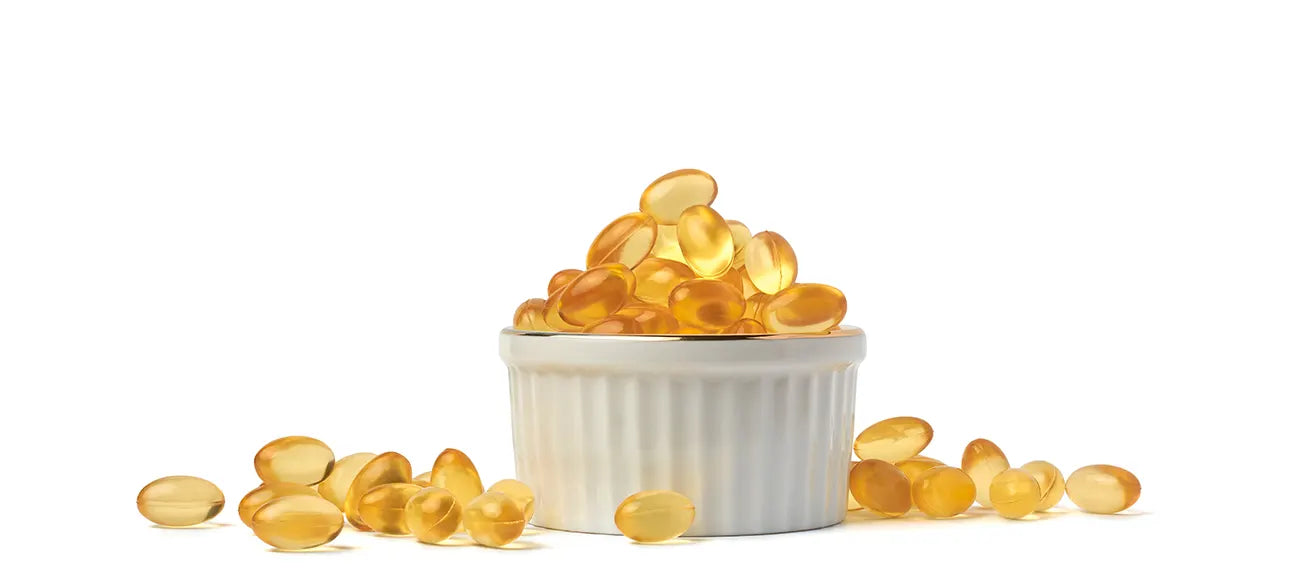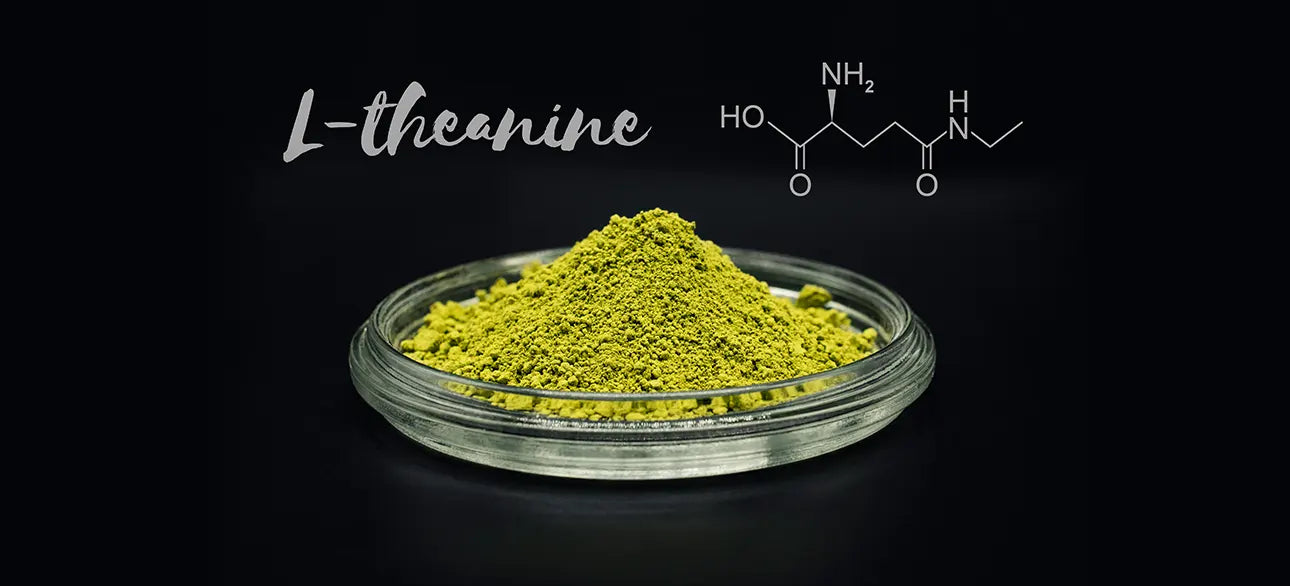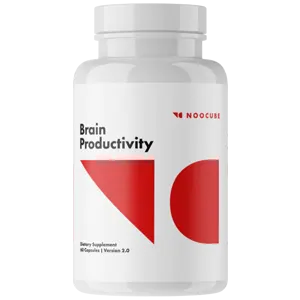Vitamin D 101: Overview, Benefits & Risks
Vitamin D 101 covers what it is, why your body needs it, how to get enough safely, and the risks of deficiency or excess your practical guide to balanced vitamin D intake.
Advertiser Disclosure: We independently select all the products. If you click through links we provide, we may earn a commission.

Vitamin D stands as one of the most vital nutrients our bodies need to work right. This wonder nutrient acts like both a vitamin and a hormone in our body. It helps keep our bones strong, our moods bright, and our immune system robust.
Most people don't get enough of this essential health aid day. In fact, some studies show that one out of four individuals run low on this sun gift. Our modern life, spent more time indoors, blocks us from the sun rays that make this health gem. Dark skin, older age, and cold lands raise the risk of deficiency even more.
This guide will walk you through all you need to know about the "sunshine vitamin." You'll learn what it does, why you need it, and how to get just the right amount. We'll dive into what foods have it, what signs show you need more, and when pills might help. Stick with us to find out how this one small thing can make a big change in how you feel.
What Is Vitamin D?
Think of Vitamin D as your body's own little sunshine factory that runs inside your skin! This mighty nutrient stands out from all other vitamins in a truly unique way. Unlike most vitamins that just act as helpers, Vitamin D works more like a boss in your body.
It starts as a basic substance, then your body changes it into a powerful hormone that runs many key jobs. Your skin makes it when sun hits you, which gives it the cool nickname "the sunshine vitamin." When sunshine touches your skin, it starts a chain of events that turns cholesterol into this vital nutrient.
Vitamin D comes in two main types that you should know about.
- Vitamin D2 comes from plant foods and mushrooms that grow in light.
- Vitamin D3 comes from animal foods and is also what your skin makes from sunshine.
Most experts say D3 works about twice as well in our bodies as D2 does. Your body stores this fat-based vitamin in your tissues for when you need it most. This storage trick helps you keep enough Vitamin D even when you don't get sun for weeks.
Why Vitamin D Matters: Key Health Roles
Vitamin D plays a star role in how your body uses calcium and phosphorus. It helps your gut soak up these minerals from the foods you eat each day. Without enough Vitamin D, these key minerals would just pass through your body unused.
Your bones then would miss out on the stuff they need to stay hard and strong. Kids who lack this vitamin may get a bone disease called rickets with bent legs and soft bones. Adults with low levels can get weak bones that break too easily.
So, what's the star turn of this sunshine vitamin? In essence, Vitamin D is the behind-the-scenes organizer for your bones. It ensures calcium and phosphorus—the two minerals your bones adore most—are absorbed and put to use where they're needed. No Vitamin D, no smooth delivery. Without sufficient of it, your bones can't acquire the sturdy framework they require, regardless of how many glasses of milk or portions of leafy greens you guzzle down.
Your body's germ shield also needs Vitamin D to work at its best. It helps fight off bugs that try to make you sick all year long. This vital nutrient also keeps inflammation in check, which helps stop many health issues. If you think of your cells as a team, Vitamin D is the coach ensuring everyone's in top shape and ready to defend the goal.
Vitamin D doesn't only benefit your body; it has a lot to do with your brain, also. It's an essential ingredient that's frequently included in cognitive support and brain function supplement blends because it maintains cognitive processes, mood, and nerve health. There are special receptors on brain cells for Vitamin D that keep your thoughts clear and your memory intact.
Even your muscles rely on it. From how efficiently your heart pumps blood to your arms and legs moving with ease and strength, Vitamin D keeps your entire system running harmoniously and in top shape. For a balanced way of health, also check on the best vitamins for prostate health, as Vitamin D is an important factor in optimal prostate function.
According to Michael F. Holick, Professor of Medicine and Physiology
Vitamin D plays a critical role not just in bone health but also in immune function and cognitive wellbeing. Ensuring optimal levels can have wide-reaching benefits across multiple systems in the body.
Top Benefits of Vitamin D Backed by Science
 Benefits of Vitamin D
Benefits of Vitamin D
Vitamin D plays a vital role in keeping us healthy, and science backs its many benefits:
- Stronger Bones: Healthy levels of Vitamin D help maintain dense, strong bones, reducing the risk of fractures, especially in older adults.
- Better Immunity: People with good Vitamin D levels are less likely to catch colds or chest infections. White blood cells rely on this vitamin to fight germs effectively.
- Improved Mood: Low Vitamin D has been linked to feelings of sadness or depression. Boosting levels can help lift mood and increase overall happiness.
- Increased Muscle Strength: This vitamin supports muscle function, reducing the risk of falls, particularly in older individuals.
- Heart Health: Some studies suggest that low Vitamin D levels may raise the risk of heart problems, while healthy levels promote smoother blood flow.
- Sharper Mind: Addressing a Vitamin D deficiency may help clear brain fog and improve focus.
Getting enough Vitamin D can make a real difference to your overall health and well-being!
What role does vitamin D play in weight loss or management?
You may be thinking if Vitamin D has a place in your plans for wellness beyond bones, brains, and brawn—namely, with weight. The answer is not clear-cut, but scientists are interested in a potential link.
Some research has observed that individuals who are overweight tend to have lower levels of Vitamin D. One of the reasons may be that Vitamin D is stored in fat tissue and therefore less available to the rest of your body.
A few interesting results have come through: for instance, adults who supplemented with calcium and Vitamin D saw a little more weight loss than those who didn't have those nutrients. The hypothesis? This duo may suppress appetite by a small margin, though the effects aren't sensational or completely untangled.
It's worth noting that Vitamin D isn't some magic solution for losing weight—today's science doesn't indicate it creates weight loss directly. But maintaining healthy levels of Vitamin D is one aspect of maintaining a balanced metabolism that may make it simpler to control your weight in conjunction with good eating and regular exercise. As with everything, concentrate on a complete package rather than seeking a single nutrient to carry everything on its shoulders!
How to Get Enough Vitamin D
The sun stands as our best source of Vitamin D, but it must be used with care. Just ten to thirty minutes of sun on your skin a few times each week can do the job. The best time is when your shadow is less long than you are tall. You don't need to burn or tan to get this gift from the sun. Your skin makes less Vitamin D as you age, so you may need more sun time.
Food can help fill your Vitamin D needs when sun is scarce or skin is dark.
- Fatty fish like salmon, tuna, and trout give you good amounts in each meal.
- Egg yolks, beef liver, and some types of mushrooms add small bits to your day.
- Many foods now come with Vitamin D added, such as milk, plant milks, and some breads.
If you can't get sun or eat these foods, a supplement may help fill the gap. Most people do well with 600 to 800 units each day from all their sources.
During our research, we found an eye-opening video by @MedicalCentric called "Vitamin D 101: Everything You Need to Know." It’s a thorough introduction to why Vitamin D is so important. If you’ve ever wondered about its benefits, this video is a must-watch!
Signs and Risks of Vitamin D Deficiency
Low Vitamin D can come from too much time spent inside four walls. People who work night shifts or live in cold, dark lands face high risks. Dark skin makes less of this vitamin from the same sun time as light skin. Age plays a role too, as skin makes less Vitamin D with each year that ticks by. Some health issues the gut from taking in this fat-soluble vitamin as it should.
Signs that you might run low on this key vitamin can be hard to spot.
- You might feel bone aches that don't seem to have a clear cause.
- Weak muscles, too much sleep, or gloom may hint at a lack as well.
- People who stay sick a lot or feel worn out might need more of this vital help.
Blood tests can tell for sure if your levels low on this health fuel. Those at most risk should check their levels at least once each year.
Potential Risks of Excess Vitamin D
Too much Vitamin D can cause bad side effects, though this is quite rare. The risk comes from supplements, not sun or food, since your skin stops making it when you have enough.
Your blood can end up with too much calcium levels when Vitamin D goes too high. This leads to nausea, thirst that won't quit, and trips to pee all the time. Stone lumps might form in your tubes that drain pee from each side.
Most people should take no more than 4,000 units of Vitamin D each day from pills. Some supplements don't mix well with high dose pills of this type. Heart pills, seizure drugs, and weight loss aids can clash with this fat-based vitamin. If you take pills for health issues, ask your health guide if Vitamin D is safe. They can check how much you should take to stay in the healthy range.
Unraveling the Vitamin D Debate
Measuring and quantifying the "right" amount of Vitamin D is not a matter of drawing a line in the sand. Experts still scratch their heads over a number of gray areas:
- Uncertain Testing Methods: Labs use different ways to check your Vitamin D, which means your results might change based on where your blood is tested.
- Free vs. Total Levels: Most tests report total Vitamin D, but some researchers argue that measuring just the 'free' form (the type your body can actually use) tells a truer story.
- Defining ‘Low’ and ‘Very Low’: There’s no universal agreement on what counts as a deficiency versus a mild shortage. Some experts set the bar higher or lower, depending on age, health, or even the season.
- Screening or Treating Everyone?: Not all physicians are in agreement about whether everyone should have their Vitamin D tested, or just those at risk—giving rise to controversies regarding who needs supplements, and who can suffice with diet and sunshine.
- Variation for Different People: Pregnant women, new moms, or individuals who have problems like kidney issues might require higher or lower doses than the standard recommendation. That makes a "one size fits all" figure difficult.
- Bottom line: even scientists disagree about ideal solutions, so consult with your health expert to determine what works best for your individual scenario.
Recommended Vitamin D Intake and Testing
| Category | Details / Recommendations |
|---|---|
| Toddlers and Babies | 400 IU per day |
| Children and Adults | 600 IU per day |
| Adults Over 70 Years | 800 IU per day |
| Skin Tone | Darker skin produces less Vitamin D from sunlight |
| Location & Sun Exposure | Less sunlight increases the need for dietary/supplemental Vitamin D |
| Blood Test Used | 25-OH-D (25-hydroxyvitamin D) |
| Healthy Blood Level Range | 20–30 ng/mL |
| Optimal Level (Some Experts) | 30–50 ng/mL |
| If Deficient | Start with a high dose, then shift to a safe, regular maintenance dose |
These recommendations are designed to help the majority of individuals reach healthy levels of Vitamin D at various life stages. However, specific needs may vary, based on another condition (aging, pregnancy, lactation). Ensure that you ask your medical expert in order to understand the appropriate amount of Vitamin D that you need to take for your specific needs.
Factors That Affect Vitamin D Dietary Needs
It is not necessarily straightforward to determine how much Vitamin D you require. While general recommendations can be a good starting point, there are several factors that might differ on the output needs:
- Testing Variability: Blood tests to measure Vitamin D differ in their standards and there is an extended debate as to what is considered an optimal or a low level.
- Free vs. Total Vitamin D: Some tests check total Vitamin D levels, while others examine "free" Vitamin D, potentially providing different insights into your status.
- High-Risk Categories: Specific people, including pregnant women, nursing mothers, those with osteoporosis or kidney problems, or individuals with darker skin and minimal sun exposure, often need increased Vitamin D amounts.
- Testing vs. Care: Regular Vitamin D testing isn't required for everyone. Yet certain groups—elderly adults, people in northern regions, or those with higher deficiency risks—may gain from consistent tracking.
Finding the Proper Balance
Vitamin D needs can be different for everyone depending on age, health, and habits. General guidelines are helpful, but your own health should decide what’s best. If you’re unsure about your Vitamin D or think you might not have enough, talk to your doctor. They can help figure out what you need to stay healthy.
Final Thoughts: Balancing Benefits and Risks
This sun-born gift plays a key role in so many parts of your health each day. From strong bones to a sharp mind, Vitamin D helps your whole self stay well.
Most people can get what they need with short bits of sun and the right foods. Those who struggle to reach safe levels naturally can add supplements to their health plan.
Talk to your health guide to find out if you need to check your Vitamin D levels. They can help you pick the right dose if you need more of this key health aid.
Small steps now to maintain the optimum level can help stop big health issues down the road. This small but strong health ally works hard, so make sure you give your body the dose it needs.
FAQs
References
Flawless Bloom has strict sourcing policies and relies on primary sources such as medical organizations, academic institutions, governmental agencies, and peer-reviewed scientific journals. Read more about how we ensure our content is accurate, thorough, and unbiased by reading our editorial process.
- Vitamin D - Consumer https://ods.od.nih.gov/factsheets/VitaminD-Consumer/
- Definition of vitamin D2 - NCI Dictionary of Cancer Terms https://www.cancer.gov/publications/dictionaries/cancer-terms/def/vitamin-d2
- Vitamin D - Dietary Reference Intakes for Calcium, Phosphorus, Magnesium, Vitamin D, and Fluoride - NCBI Bookshelf https://www.ncbi.nlm.nih.gov/books/NBK109831/
- Vitamin D and the Immune System - PMC https://pmc.ncbi.nlm.nih.gov/articles/PMC3166406/
- Vitamin D Deficiency and Risk for Cardiovascular Disease - PMC https://pmc.ncbi.nlm.nih.gov/articles/PMC2851242/
- Aging decreases the capacity of human skin to produce vitamin D3 - PubMed https://pubmed.ncbi.nlm.nih.gov/2997282/
- Vitamin D - NHS https://www.nhs.uk/conditions/vitamins-and-minerals/vitamin-d/
- Vitamin D - Health Professional Fact Sheet https://ods.od.nih.gov/factsheets/VitaminD-HealthProfessional/






























